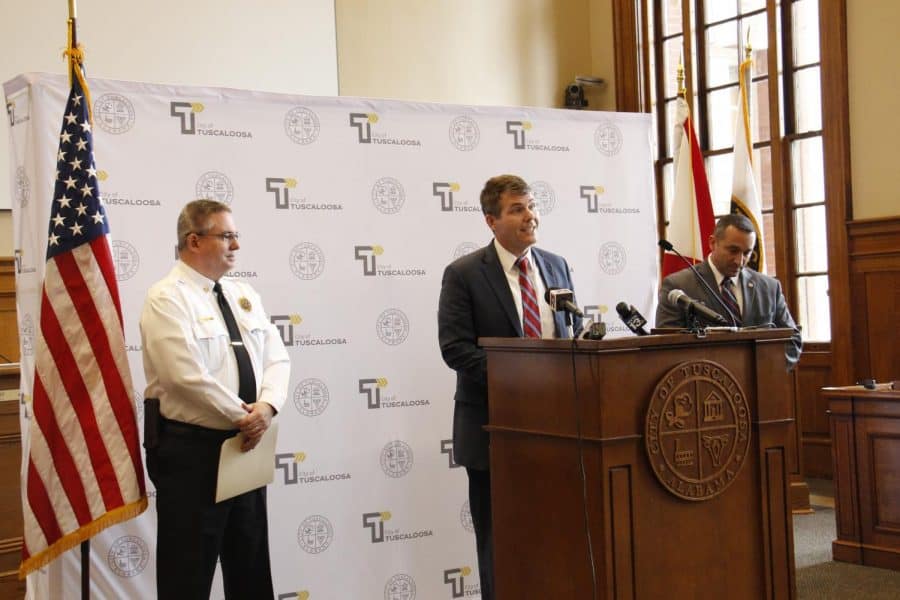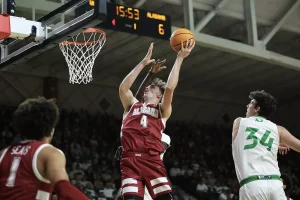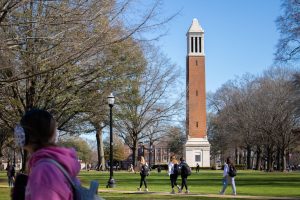Coronavirus causes students and faculty to rethink spring and summer plans
March 12, 2020
Amid the coronavirus pandemic, the cancellation of UA-sponsored travel and some affiliate programs has affected UA students and faculty, causing some to cut their trips short and others to re-evaluate their academic plans.
Since late January, the mysterious and rapidly spreading coronavirus has firmly grasped the nation’s attention, attracting massive amounts of media attention. The flu-like respiratory virus has left thousands dead and hundreds of thousands infected. As the virus spread across continents, academic institutions and universities have canceled study-abroad programs and rushed students home.
On March 4, the University said in an official statement that it was canceling all University-sponsored international travel in the month of March and suspending all University-sponsored international trips departing after the month of March due to concerns about the outbreak. In the statement, the University said that the cancellation for trips occurring after March may be lifted depending on how the situation unfolds.
For some students and faculty planning to attend the faculty-led study-abroad trips, this development may mean withdrawing from their program and re-evaluating their academic plans. For other students currently studying abroad, the cancellation required an immediate return from their program.
While faculty-led programs may be canceled, the March 4 announcement from the University did not order students home from affiliate programs. Instead, the statement “strongly encourages” faculty, staff and students to take the new policy under advisement when considering travel plans. However, some affiliate schools hosting UA students studying abroad have suspended their programs.
Guiliana LaMarca, a UA junior majoring in English and history, was studying with UA affiliate program Academic Programs International (API) in Florence, Italy. The number of deaths in Italy from coronavirus has now surpassed 600, and it is the second-most affected country after China.
While LaMarca and classmates were on a trip to Milan, the CDC placed Italy at an alert level two and stopped all trains coming in and out of Milan, where there were a small number of confirmed coronavirus cases.
LaMarca and her class were able to catch one of the last trains leaving the city. Shortly after,
Italian airline Alitalia announced that it would stop all flights in and out of Milan starting on March 9, the same day the Italian government placed the country on lockdown, canceling school, banning public events and limiting business hours for restaurants and bars.
Meanwhile, LaMarca made it back to Florence and continued her studies.
“Another week later, the CDC put out more warnings, and NYU pulled their kids out of their campus in Florence,” LaMarca said. “And that’s when we realized that this was serious, but our program was saying that nothing was canceled and that everything is fine.”
As more cases were discovered in Italy, LaMarca’s program continued until Feb. 28, when the CDC raised Italy to an alert level three, at which point the CDC recommends that individuals cease all non-essential travel to the region.
“That’s when our program sent us home,” LaMarca said.
Although the University itself didn’t order students home, LaMarca said that she did receive an email from the University the same night that API canceled her program, advising that students return home.
LaMarca credited API with being great communicators throughout the situation.
“Within 30 minutes of the CDC declaring it a level three, [API] sent out an email telling students and parents that the program was canceled,” LaMarca said. “We needed to be out by Friday, March 6 – one week.”
With seven days to leave the country, LaMarca and her classmates enjoyed their remaining days in Florence as much as they could.
“My friends and I went out to our favorite restaurants and our favorite spots, and we got souvenirs,” LaMarca said. “We visited all the locals that we formed relationships with, and so many people got emotional. They didn’t think it was necessary for us to go home, because there weren’t any confirmed cases in Florence.”
LaMarca said that she wasn’t nervous about the virus, and she said that Florence was still as busy with tourists as ever. LaMarca said that she thought that the media were causing panic, and making the virus seem like a bigger threat than it is.
“Nobody – the natives, or the students – had a fear of the virus,” LaMarca said.
Students leaving the affiliate program in Florence were responsible for purchasing their own last-minute return tickets, and to LaMarca’s surprise, there were no medical tests in the international airports that she traveled through on her way back home.
“I flew into Newark, New Jersey, [then] to Cleveland, Ohio, and I wasn’t screened or tested for coronavirus,” LaMarca said. “No temperature screenings, no tests. No one cared that I was coming from Italy.”
On Feb. 25, the Alabama Department of Public Health released a letter recommending a 14-day period of isolation when returning from affected areas. LaMarca and other students returning from affected areas have been instructed by the University not to return to campus for two weeks – the quarantine time for COVID-19.
“I’m from Cleveland, so I’ll be here for the rest of the semester,” LaMarca said. “And it’s currently a blizzard outside.”
While LaMarca is back home for the semester, other members of the UA community were forced to remain stateside before they could jet off to Italy.
“My class was probably one of the first trips to get officially canceled by the University,” Darrin Griffin, assistant professor in the Department of Communication Studies, said.
Griffin’s class, COM 395, was to be a faculty-led special topics course, which would take place over 4 weeks in Rome and focus on bargaining and negotiation in communication.
On Feb. 28, the trip, which was supposed to depart on May 24, was canceled due to concerns about the spread of coronavirus in Italy. The writing had been on the wall in Italy for weeks, Griffin said.
“One of the reasons that I think it’s important for the University to take the steps that it did is because students were starting to pay money, buy flights and prepare for this trip,” Griffin said. “If they had waited longer, it could have had financial repercussions on the students themselves that would be non-recoverable.”
Griffin said that none of his students had yet purchased their flights and that their down-payments for the class were fully refunded.
“I am fully in support of what the University did,” Griffin said. “I back them. I think that they did a good job at it, as it related to my class, but I can’t speak to the other classes they canceled.”
According to Griffin, the small size of his class, and the fact that the students hadn’t made serious financial commitments, helped ease the cancellation process. However, for his students and for him, Griffin said that the trip was a missed opportunity.
“Last year when we went, it was the trip of a lifetime,” Griffin said.
Though some trips are canceled altogether, the future of other faculty-led programs remains uncertain. Christopher Hale, assistant professor of political science at the University, was to lead a group of students on a trip to Antigua, Guatemala, in July, but the trip is currently suspended.
“It’s up in the air,” Hale said. “It hasn’t been canceled, but we don’t really know what the status of the program is at this point.”
Hale currently has ten students committed to the program and said that if the July trip falls through, he plans on offering the six credits in the summer.
“I think what I will probably do is offer these courses in June, in class, assuming the University doesn’t cancel classes in the summer,” Hale said. “The news has changed so rapidly in the past few weeks that it’s hard to say anything definitively.”
Initially, Hale thought the University’s decision to suspend faculty-led study-abroad programs was a harsh measure, but “as the news has deteriorated over the last week, it now appears obvious that it was the right decision to make.”
Though Griffin doesn’t fault the University for preferring to be safe rather than sorry, the canceled trip has left him with a void in his calendar.
“I’m upset about it because I was going to be in Italy for a month,” Griffin said. “At this point, I have a month of my life back, which is good and bad, because now I have to find something to do.”
The same is true for the eight students who were enrolled in the class. For students like LaMarca, one concern is being able to finish their classes and earn their credits after returning home. Some, like LaMarca, will have online options.
“[API] is taking this time to talk to their professors and set up online classes,” LaMarca said. “We haven’t heard much about how the online process is going to work because they are still working on the details, but as long as I’m learning and getting credit, I have no problem with that.”
Griffin said that there is a possibility that the class will move online or include domestic travel instead. The department will probably offer similar courses in the summer, Griffin said, so any students not graduating in May would have the opportunity to take advantage of a different special topics course over the break.
“There will be other special topic courses this summer, and more than likely, I’ll be teaching one,” Griffin said. “I don’t see students as being put out on their course credits.”
In addition to the issues that it’s causing for students going abroad, the coronavirus, now labeled as a pandemic by the World Health Organization, is affecting student academics domestically, too. Nicoletta Valenzano, a senior majoring in public health and psychology, was planning to attend the 2020 conference for the Society of Public Health Education (SOPHE). The event, originally planned for Atlanta, was moved online for health and safety reasons.
SOPHE is a nonprofit consisting of over 4,000 health professionals and students from over 25 countries that raises awareness of the connection between behavioral sciences, health education and health promotion and builds knowledge to help health educators respond to public health emergencies.
While SOPHE is providing all registered attendees with tickets for the online event, it is not refunding the fee for the conference, which costs more than $250.
Typically, SOPHE is a major conference where students like Valenzano can present their research and connect with professionals in their field.
“I was presenting my undergraduate research there,” Valenzano said. “A big part of doing research is being able to present it at conferences. Having that kind of national stage would have been really good to help me out with research ideas and methods.”
For student presenters like Valenzano, presenting their research is an opportunity to share their ideas, connect with professionals and receive feedback.
Valenzano’s research, “Family Composition in the Conformity to Masculinity Norm,” looks at how different forms of masculinity influence men’s health and health disparities
Valenzano may be able to upload her research poster presentation to the virtual conference, but she doesn’t believe that she will receive the same amount of feedback from public health professionals that she would from the foot traffic of an in-person conference, Valenzano said.
For Valenzano, the coronavirus has shaken up more than her attendance at the SOPHE conference.
“I got into a lot of different master of public health programs, and every single one of them, including top ones in the nation, canceled all of their admitted student days and all of their tours because of the outbreak,” Valenzano said.
For Valenzano, this means “shooting in the dark” to pick a master’s program.
Online virtual campus tours will be available to Valenzano, but she believes that it won’t be the same as an in-person campus tour.
“Going forward, it’s going to be hard to pick a program that I fit with because I can no longer visit them in person,” Valenzano said. “The first time I get to see the facilities that I’ll be working in for the next two years will probably be my first day of class.”










